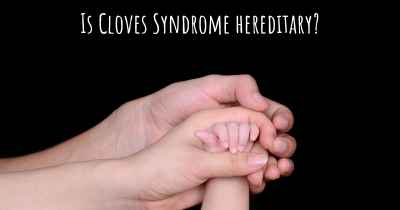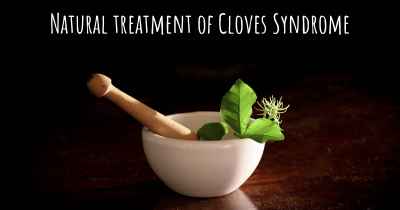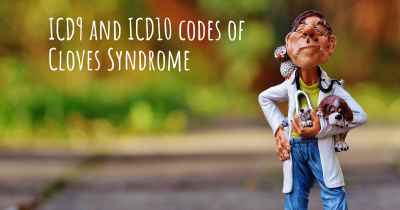What is the life expectancy of someone with Cloves Syndrome?
Life expectancy of people with Cloves Syndrome and recent progresses and researches in Cloves Syndrome

Cloves Syndrome is a rare congenital disorder characterized by overgrowth of tissues and vascular malformations. Due to its rarity, limited data is available regarding life expectancy. However, it is important to note that the prognosis can vary significantly depending on the severity of the condition and associated complications. Some individuals with Cloves Syndrome may have a relatively normal life expectancy, while others may experience significant health challenges that can impact longevity. It is crucial for individuals with Cloves Syndrome to receive comprehensive medical care and ongoing management to optimize their health and well-being.
Cloves Syndrome: Understanding Life Expectancy
Cloves Syndrome, also known as Congenital Lipomatous Overgrowth, Vascular Malformations, Epidermal Nevi, and Skeletal Anomalies, is an extremely rare and complex disorder that affects various systems of the body. Given its rarity, there is limited data available regarding the life expectancy of individuals with Cloves Syndrome. It is important to note that each case is unique, and the prognosis can vary significantly from person to person.
Overview of Cloves Syndrome:
Cloves Syndrome is characterized by the presence of overgrowth of fatty tissue (lipomatous), vascular malformations, epidermal nevi (skin lesions), and skeletal anomalies. These manifestations can affect multiple body parts, including limbs, trunk, face, and internal organs. The severity and extent of these abnormalities can vary widely among individuals.
Medical Challenges and Complications:
Cloves Syndrome can present numerous medical challenges and complications that may impact life expectancy. Some of these challenges include:
Vascular Malformations: The abnormal development of blood vessels can lead to significant complications, such as thrombosis, bleeding, and organ dysfunction. These complications can pose a risk to the overall health and well-being of individuals with Cloves Syndrome.
Skeletal Anomalies: Skeletal abnormalities, such as scoliosis or limb length discrepancies, can cause functional limitations and potentially impact mobility and quality of life.
Organ Involvement: In some cases, internal organs may be affected by the overgrowth of tissues, leading to potential complications and reduced organ function.
Respiratory Issues: If the overgrowth affects the chest or airways, it can result in respiratory difficulties, which may require medical intervention and ongoing management.
Associated Conditions: Individuals with Cloves Syndrome may also have associated conditions, such as lymphatic abnormalities, neurological issues, or developmental delays, which can further impact their health and prognosis.
Management and Treatment:
Due to the complexity of Cloves Syndrome, a multidisciplinary approach involving various medical specialists is often necessary. The management and treatment of Cloves Syndrome focus on addressing specific symptoms and complications. This may involve surgical interventions, medical therapies, physical therapy, and ongoing monitoring of associated conditions.
Life Expectancy:
It is challenging to provide a definitive life expectancy for individuals with Cloves Syndrome due to the limited available data and the wide variability in the severity and progression of the condition. The prognosis can depend on factors such as the extent of organ involvement, the presence of associated conditions, and the effectiveness of treatment interventions.
Support and Quality of Life:
While the life expectancy of individuals with Cloves Syndrome may be uncertain, it is crucial to focus on improving their overall quality of life. Supportive care, including access to appropriate medical interventions, therapies, and psychosocial support, can greatly enhance the well-being of individuals and their families.
Conclusion:
Cloves Syndrome is a rare and complex disorder with significant variability in its manifestations and prognosis. The life expectancy of individuals with Cloves Syndrome is difficult to determine due to the limited available data and the individualized nature of the condition. It is essential for individuals with Cloves Syndrome to receive comprehensive medical care, ongoing monitoring, and support to optimize their quality of life.








